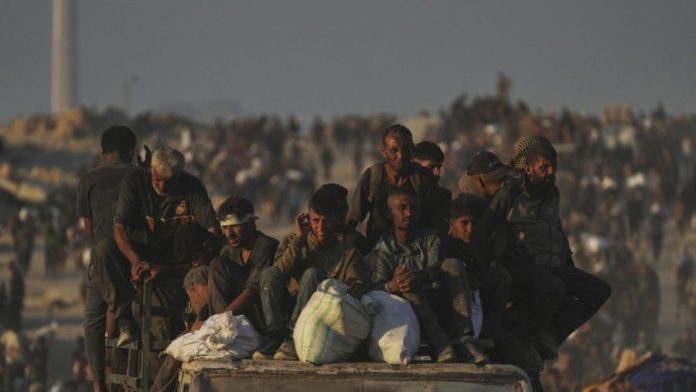
Earlier this month, the Integrated Food Security Phase Classification — a group of experts that monitor hunger for the U.N. — used data submitted by 21 humanitarian organizations and made a finding that 500,000 residents of Gaza City are experiencing acute malnutrition, starvation or death.
Deir al-Bala and Khan Younis are likely to qualify as official famine areas by September, and the rest of Gaza’s population is struggling to cope with severe hunger.
Given intensifying military conflict, the collapse of health care, hospitals, water and sanitation services, the destruction of homes, and Israel’s restrictions on the delivery of food, the group predicted that conditions are likely to get worse.
A spokesman for Israeli Prime Minister Benjamin Netanyahu denounced the U.N. report as “an outright lie,” and allegations of famine as a “fake campaign” by Hamas. Meanwhile, Israel, which recently summoned 60,000 reservists to active military duty, is going forward with plans to invade Gaza City.
Although President Trump previously indicated that he believed Palestinians in Gaza were starving, neither the White House nor the State Department commented on the finding. U.S. Ambassador to Israel Mike Huckabee asserted on social media, “Tons of food has gone into Gaza but Hamas savages stole it, ate lots of it to become corpulent.”
“Just as we spoke out and had compassion for the victims and families of October 7,” Rep. Marjorie Taylor Greene (R-Ga.) asked, “how can Americans not speak out and have compassion for the masses of innocent people and children in Gaza? Is one type of innocent life worthy and another type of innocent life worth nothing?”
Greene has also blasted the State Department for halting grants of temporary visitor visas to Gaza residents seeking privately funded medical treatment in the U.S., many of them with life-threatening injuries.
Almost immediately, Greene was slammed for characterizing Israel’s war in Gaza as “genocide.” “I don’t care what crazy pants thinks,” Sen. John Fetterman (D-Pa.) said. “It’s not a genocide, you know, that’s just not the case.”
People of good will and partisan conviction continue to argue, often at the top of their lungs, about whether genocide applies legally or morally to the situation in Gaza. In 2024, the International Court of Justice found that Palestinians who live there “have a plausible right to protection” and Israel must take additional steps to prevent genocide from occurring. A formal judgment from the court about whether Israel has violated the Genocide Convention, however, is unlikely to be issued until 2028. The debate is certain to continue.
That said, Taylor Greene’s plea to do more to reduce acute malnutrition, starvation and death should resonate with Americans across the political spectrum and by implication the federal government, which has considerable leverage with Israel, whether or not they think genocide is occurring right now.
The criteria for a famine are very specific: extreme food shortages in one or more of every five households, and death by two adults or four children out of every 10,000 inhabitants each day from starvation of a combination of malnutrition and disease.
The number of households in Gaza City reporting severe hunger was found to have tripled between May and July — the period since Israel replaced the U.N. assistance system with distribution sites run by U.S. contractors, at which hundreds of Palestinians have reportedly been killed while surging to position themselves to get food.
These numbers are, of course, almost impossible to verify. But a classified study by the Israeli military found that 83 percent of the Gazans killed in the conflict through May were civilians, an extremely high percentage for modern warfare. Anyone who is paying attention, moreover, can see that the situation in Gaza is dire.
Logistical, capacity and resource challenges can be surmounted, according to Tjada D’Oyen McKenna, head of Mercy Corps, an aid program operating in Gaza. But only with an exercise of political will.
“The time for debate and hesitation has passed,” the Integrated Food Security Phase Classification report concludes. Even a brief delay will “exponentially” increase the number of preventable deaths. America should act — now.
Glenn C. Altschuler is the Thomas and Dorothy Litwin Emeritus Professor of American Studies at Cornell University.

